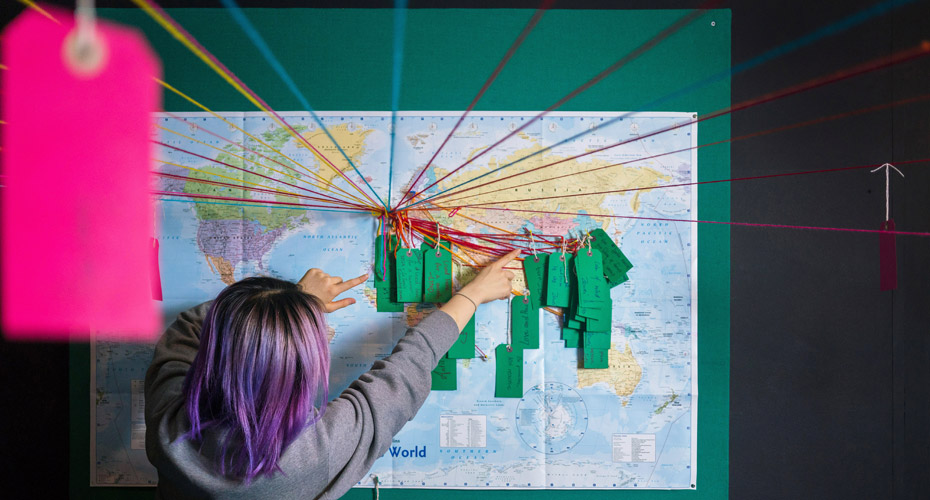Communications
![]()
10th for Communications in the Guardian University Guide 2023
![]()
Unique on site resources: Exeter’s Special Collections archive and the Bill Douglas Cinema Museum
![]()
Opportunities for study abroad and employment experience in the UK or abroad
![]()
Multi-faceted degree drawing on strengths in Drama, English, Film & Television Studies and Modern Languages and Cultures
Degrees at Streatham Campus, Exeter
Communications at Exeter

The study of communications shows us how individuals, organisations, and cultures around the world interact with each other. It enables us to understand how and why ideas and content have been generated, disseminated, and received, through successive waves of technological innovation from the steam-powered printing press, through the age of broadcast media, to the interactive social media platforms that underpin our contemporary world.
Based within the interdisciplinary Department of Communications, Drama and Film, and taught by active researchers with a wide variety of expertise, the programme comprises a spine of compulsory modules providing core Communications content which is supplemented by a range of optional modules in various subject areas across the University, including Film and Television Studies, English, Sociology, Politics, Theology, and Modern Languages. As such, students can choose to develop a particular area of expertise within the broad field. Students experience different ways of learning, engage in innovative forms of assessment, and develop a range of industry facing skills. A core ‘Communications in the Workplace’ module includes a period of guided work experience.
Modules that cover history, theory, and research methodologies sit alongside practical modules that hone professional skills, equipping you to work across the creative industries or other roles requiring graduates who understand the importance of clear and powerful articulation. Specialist Communications modules cover a broad range of material: from the history of communication technologies to professional writing; from communications and the climate crisis to video games and interactive technology.
Students benefit from access to distinguished academics and specialist resources including the Bill Douglas Cinema Museum, the Digital Humanities Lab, the Drama studios and the Foreign Language Centre.



